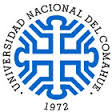El presente trabajo de tesis propone indagar mediante un estudio exploratorio – descriptivo como se implementa la Ley Nacional de Educación Sexual Integral N° 26.150, en el ciclo básico de la Escuela Agrotécnica Eldorado – Misiones Argentina.
Se analizan los diferentes aspectos que plantea la Ley y los Lineamientos Curriculares de la Educación Sexual Integral para trabajar en los establecimientos educativos de nivel secundario de la educación obligatoria; posteriormente se indaga en qué espacios curriculares se aborda la temática, y desde qué perspectiva lo hacen; para finalmente
cotejar los objetivos que plantea la Ley Nacional de Educación Sexual Integral y los contenidos que se proponen en los ejes conceptuales de la ESI con las prácticas educativas que ejecutan los y las docentes en la institución. La investigación se complejiza al incluir la indagación sobre la participación y las dificultades que presentan
los y las docentes de la Escuela Agrotécnica Eldorado en la implementación de la
educación sexual en sus espacios curriculares. Para la consecución de los objetivos
se utilizan diversas estrategias metodológicas, cualitativas y cuantitativas combinadas
para la obtención de datos, tales como análisis documental, encuestas y entrevistas,
utilizando la triangulación metodológica con el propósito de contrastar y validar los resultados. Los análisis realizados dan cuenta de la institucionalización y curricularización
de la ESI en este ciclo escolar de la escuela estudiada, con la realización de variadas actividades educativas en las que se denotan buenas prácticas pedagógicas de ESI. Se considera que los resultados obtenidos son altamente positivos en relación con la implementación de la ESI y permite, a su vez, orientar algunas propuestas de mejora.
This thesis work proposes to investigate by means of an exploratory-descriptive study how the National Law of Integral Sexual Education No. 26,150 is implemented in the basic cycle of the Eldorado Agrotechnical School - Misiones Argentina. The different aspects posed by the Law and the Curricular Guidelines for Sexual Education are analyzed for educational establishments at the secondary level of obligatory education; Subsequently, it is investigated in which curricular spaces the subject is addressed, and from what perspective they do it; to finally compare the objectives set by the National Law on Integral Sexual Education and the contents proposed in the conceptual axes of the ESI with the educational practices carried out by the teachers in the institution. The research becomes more complex when including the inquiry about the participation and difficulties that the teachers of the Eldorado Agrotechnical School present in the implementation of sexual education in their curricular spaces.
To achieve the objectives, various methodological, qualitative and quantitative strat- egies are used combined to obtain data, such as documentary analysis, surveys and interviews, using methodological triangulation in order to contrast and validate the results. The analyzes carried out show the institutionalization of ESI in this school year of the school studied, with the performance of various educational activities in which good ESI pedagogical practices are denoted. The results obtained are highly positive in relation to the implementation of the ESI and allow, in turn, to guide some proposals for improvement.



